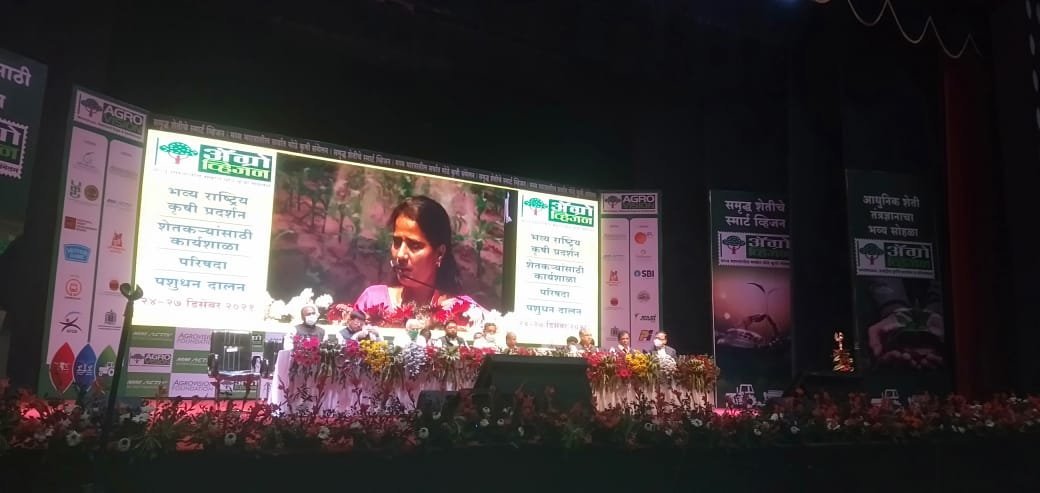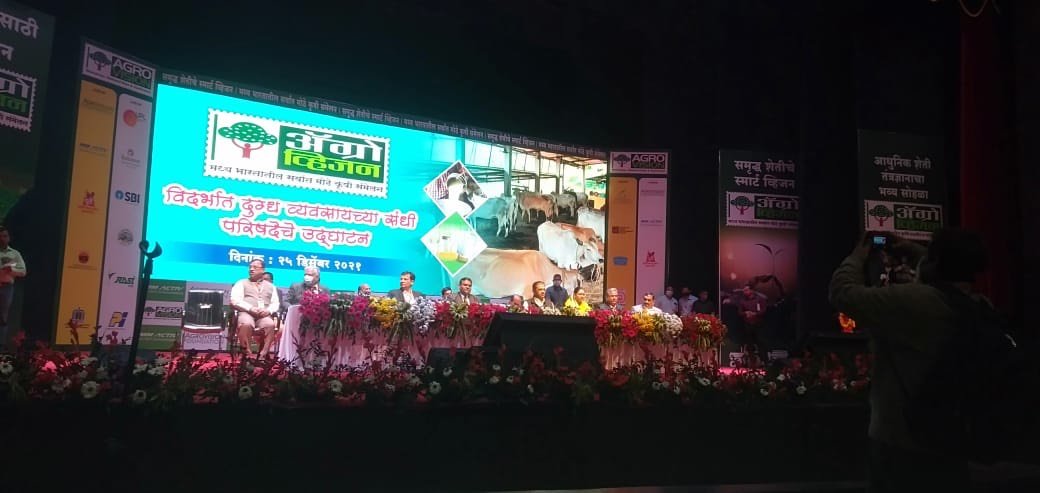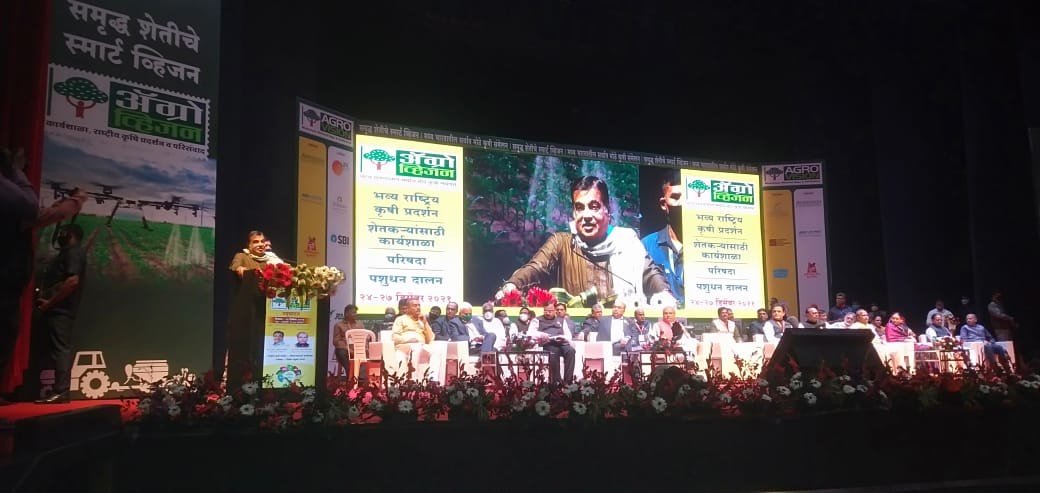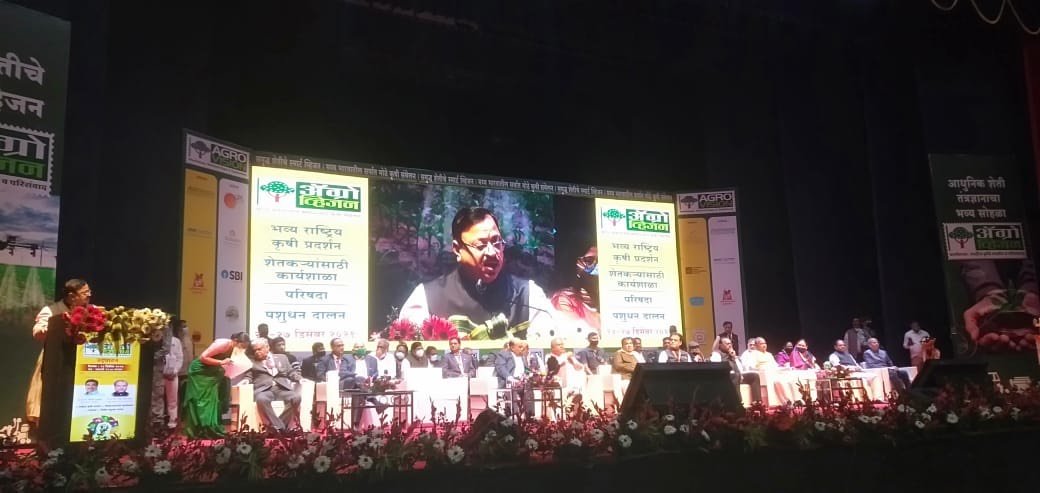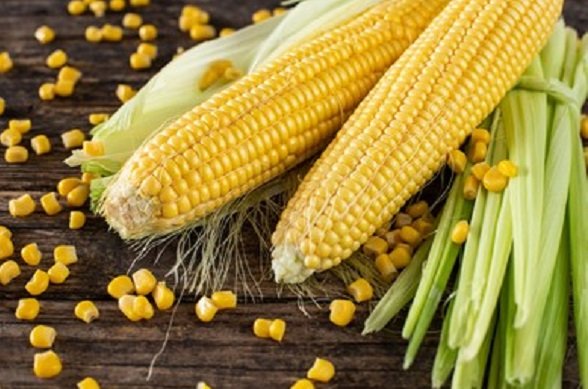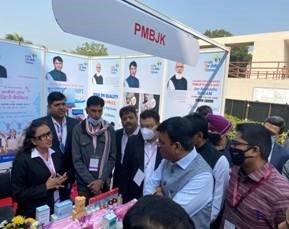Fisheries conference at 12th Agrovision focus on latest innovations towards sustainability
Experts discuss ways to increase the income of fish farmers
On the third day of 12th Agrovision Summit, a conference was held on the scope of inland fisheries in the Vidarbha region. The event started with the lamp lighting ceremony by Dr Suvarna Chandrappagari, Chief Executive, National Fisheries Development Board (NFDB), Tage Taki, Minister of Agriculture, Horticulture, Dairy Development, Fisheries, Arunachal Pradesh; Lalchand Kataria, Minister of Agriculture, Animal Husbandry and Fisheries, Dr CD Mayee, Chairman – Advisory Council Agrovision, Ex-Chairman – ASRB (ICAR), Dr Ashish Paturkar, Vice-Chancellor, Maharashtra Animal and Fishery Sciences University (MAFSU), Nagpur and Ravi Boratkar, MD, MM Activ Sci-Tech Communications, Publisher, MMA publications and Chairperson, Agrovision Foundation among other dignitaries.
Mayee started the conference by mentioning the scope of inland fisheries in the Vidarbha region as there are lot of water holds in the region. He stated that the conference will help farmers in the region to focus on new techniques and come with innovation in aquaculture.
Paturkar in his speech gave an idea about fishery potential in Bhandara, Gondia and Gadchiroli among other regions, which has big ponds. He also mentioned Google mapping and how it has helped to map the entire Vidarbha region for fish cultivation. Talking about the challenges, he said that many regions lack proper fishing techniques and urged stakeholders, ministry and farmers to work in an organised way for the upliftment of the sector. He emphasised maximum utilisation of water bodies, seed production in sufficient quantities, better logistic facilities, procuring good sources and cheaper fish feed, fish production and processing.
Exports of processed fish products is what Paturkar mentioned during the conference. Lastly, he talked about how value addition and collaboration with private players will help fish farmers for a better future.
Dr Chandrappagari in her speech gave an overview of how despite being a drought-prone region things can turn for better by adopting sustainable measures. Mentioning that Vidarbha has a huge potential in the fisheries sector, she urged farmers and stakeholders to adopt certain measures like increasing productivity, procuring quality seeds, following good management practices and upgrading marketing infrastructure. Focus on river ranching, storage facilities, transportation and logistics and adoption of schemes in the Vidarbha region are some of the measures mentioned by Dr Chandrappagari.
Kataria talked about prawn cultivation in Churu district and how the Government of Rajasthan are taking various initiatives to encourage farmers in fish farming and adopt various sustainable measures viz rainwater harvesting, drip irrigation etc.
Taki in his speech thanked the Agrovision team for inviting him where his state will be hugely benefitted from the technologies being showcased at the event. He said, “Arunachal being a hilly terrain, there are a lot of challenges in the region.” He particularly mentioned the right way to implement techniques for sustainable fish farming, balanced use of water bodies and urged the stakeholders for easy earning methods for farmers. Besides, he talked about better logistic facilities and technologies to enhance fish feed. He particularly mentioned certain fish species on the verge of extinction despite less pollution in the state.
Lastly, he urged farmers to take up responsibilities and form self-help groups to sustain themselves in the long run.
Experts discuss ways to increase the income

